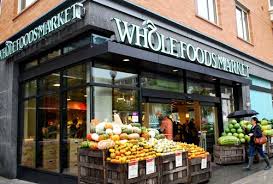Mom And Pop For Sale : 5 Unique Opportunities

In the heartbeat of local economies, small businesses, often affectionately known as “Mom And Pop For Sale” shops, play a vital role.
These enterprises, built with passion and dedication, are now finding themselves at crossroads. In this article, we delve into the intriguing landscape of Mom and Pop businesses for sale.
From shifting ownership trends to the challenges faced, we explore the reasons behind such sales and provide practical insights for both sellers and potential buyers.
Join us on this journey to understand the dynamics of these sales, their impact on communities, and the strategies for a successful transition.
Whether you’re a business owner contemplating a sale or someone interested in preserving the essence of community commerce, the following pages offer valuable insights into the world of “Mom And Pop For Sale.”
Introduction

- Definition of “Mom and Pop” businesses: Mom and Pop businesses, a term affectionately used to describe small, family-owned enterprises, are the backbone of local economies. These businesses often have a distinct charm, offering personalized services and a unique connection to the community.
- Significance in local economies: Mom and Pop shops contribute significantly to the vibrancy of local communities. They are not just places of commerce but also hubs for social interaction, creating a sense of belonging and familiarity. These businesses often showcase the diverse offerings and personalities of the neighborhoods they serve.
- Overview of the article’s focus on businesses for sale: The focus of this article is on the evolving landscape of Mom and Pop businesses that are up for sale. As economic, technological, and demographic factors reshape the business environment, these establishments face unique challenges and opportunities. We will explore the trends, reasons behind sales, and practical considerations for those involved in the process.
Trends in Small Business Ownership
- Changing dynamics of family-owned businesses: In recent years, the dynamics of family-owned businesses, including Mom and Pop shops, have undergone notable changes. While these enterprises have been traditionally passed down through generations, modern trends indicate a shift. Younger generations may choose different career paths or face challenges in sustaining the family business, leading to an increase in sales rather than succession.
- Rise of entrepreneurship in the modern era: Simultaneously, the modern era has witnessed a surge in entrepreneurship. Aspiring business owners are venturing into new and innovative ventures, often favoring startups over the acquisition of existing establishments. This shift in mindset contributes to the increasing availability of Mom and Pop businesses for sale, creating opportunities for a new wave of entrepreneurs.
Challenges Faced by Mom and Pop Shops
- Economic pressures and competition: Mom and Pop shops often operate in highly competitive markets dominated by larger corporations and online retailers. These small businesses face economic pressures such as rising operating costs, including rent, utilities, and labor expenses. Additionally, they may struggle to compete with larger competitors that benefit from economies of scale and extensive marketing budgets.
- Technological advancements impacting traditional businesses: The rapid pace of technological advancements presents both opportunities and challenges for Mom and Pop shops. While digital tools and online platforms offer new avenues for marketing and sales, they also require investments in infrastructure and expertise that small businesses may find daunting. Moreover, the shift towards e-commerce and digital transactions can pose challenges for brick-and-mortar establishments that rely on traditional storefronts and face-to-face interactions with customers.
Reasons for Selling
- Retirement and succession planning: A significant factor driving the sale of Mom and Pop businesses is the retirement of the owners. As the original proprietors approach retirement age, they are faced with decisions about the future of their business. The challenges of passing down a family-owned business to the next generation or finding a suitable successor can lead many owners to opt for selling the business as a practical and financially viable solution.
- Economic factors influencing sales decisions: Economic factors, such as changes in market conditions, fluctuations in consumer behavior, or shifts in the local economy, can influence the decision to sell a Mom and Pop business. Owners may choose to capitalize on the business’s current value or exit the market due to concerns about its long-term sustainability. Economic uncertainties, including recessions or unexpected challenges, can also prompt owners to consider selling as a precautionary measure.
Preparing a Mom and Pop Business for Sale

- Financial evaluations and documentation: Before listing a Mom and Pop business for sale, owners must conduct a thorough financial evaluation. This involves assessing the business’s profitability, cash flow, and overall financial health. Accurate and well-documented financial records are crucial for attracting potential buyers, instilling confidence in the business’s performance, and facilitating a smoother transaction process.
- Enhancing marketability and appeal to potential buyers: To make a Mom and Pop business more attractive to potential buyers, owners should focus on enhancing its marketability. This includes addressing any operational inefficiencies, updating the physical appearance of the storefront, and implementing effective marketing strategies. Presenting a well-maintained and appealing business not only attracts more buyers but also positions the business for a more favorable sale.
Navigating the Sales Process

- Identifying potential buyers: Once a Mom and Pop business is prepared for sale, the next crucial step is identifying potential buyers. This involves reaching out to a network of interested parties, including other local entrepreneurs, individuals seeking business opportunities, or even competitors interested in expansion. Additionally, business brokers can play a crucial role in connecting sellers with qualified buyers.
- Legal considerations and due diligence: Navigating the sales process requires careful attention to legal considerations and due diligence. Sellers must ensure that all legal aspects, including contracts, permits, and licenses, are in order. Buyers, on the other hand, need to conduct thorough due diligence to assess the business’s financial health, liabilities, and potential risks. Working with legal professionals and advisors is essential to navigate these complexities successfully.


